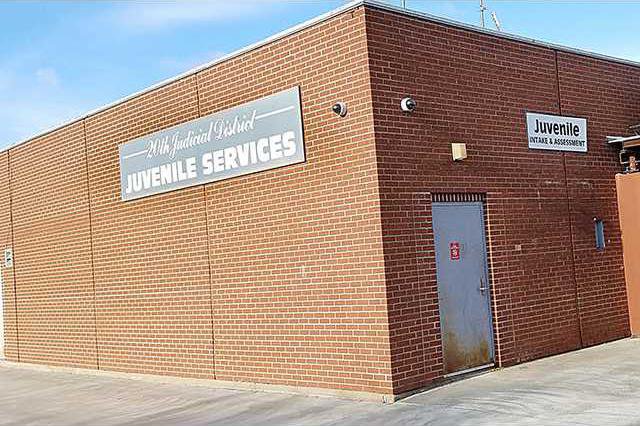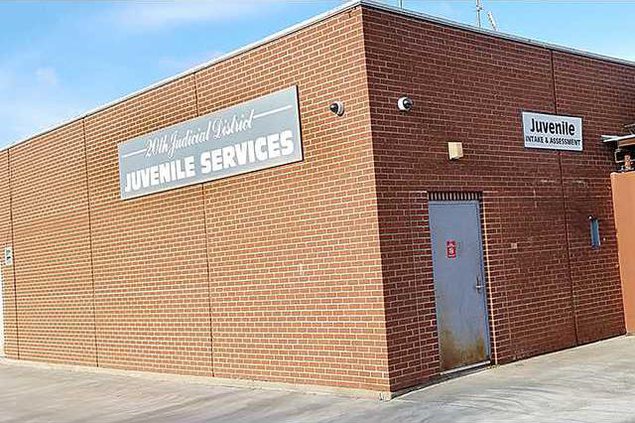February marks the first year of the implementation for a new approach to juvenile justice in Southeast Kansas, and state and local officials say it will now be expanded to address juvenile offenders statewide.
For the past year, courts in southeast Kansas have been employing an effective alternative to removing youth from their homes or confining them, known as Functional Family Therapy. Extending this approach statewide will further advance the state’s goal to keep juveniles in their homes by using alternatives to sentencing.
“This is not something we previously had as an option,” said Marissa Woodmansee, Great Bend-based 20th Judicial District juvenile services director. “I am excited to have something more to offer.”
“Now this combination of therapy and supervision for juvenile offenders is about to reshape the way Kansas addresses crime committed by youth statewide,” said Terri Williams, deputy secretary, Juvenile Services, Kansas Department of Corrections. “I could not be more impressed by the results we are witnessing in Southeast Kansas.”
Woodmansee’s office may begin making referrals effective Feb. 6. “Locally, this provides another opportunity for the youth and families to access before an out of home placement would be consider,” she said.
What started this
Woodmansee and Williams are referring to reforms ushered in by the Gov. Sam Brownback’s signing last year of Senate Bill 367. In short, it created and amended law related to the Kansas juvenile justice system pertaining to case, probation, and detention length limits. It promoted keeping offenders in their home communities and enshrined FFT, a treatment that hasbeen effective at preventing juvenile offenders from committing more crimes.
One of the many reasons for its inception was to address the juvenile offenders placed in out-of-home placements across the state, Woodmansee said. “These do pose a huge expense on the state, and the reality is the kids will eventually return back to their home communities.”
As for the 20th Judicial District, “we have worked very hard to get kids back to their home communities,” she said. The barrier being they know the kids can’t quite make it in their homes because systemically the home environment needs more (parenting skills, substance abuse control, or elements of basic communication).
Backed by data
In southeast Kansas, the contract partner was Eckerd Kids, Williams said. “In February we will celebrate with Eckerd Kids the successes seen in their region of the state in just one year.
So far, 89 juvenile-justice-involved youth and their families entered the FFT program instead of experiencing an out-of-home placement or secure confinement. Of those, just three were placed in out-of-home settings during FFT treatment, much improved from results of a 2014 study that found more than 51 percent of Kansas youth who were discharged from a Youth Residential Center II remained out of home six months post discharge.
“What this means is that youth who are supervised by the FFT program in Southeast Kansas are responding better to treatment, not committing additional crimes, maintaining their bonds to family, and costing the state less by staying out of more restrictive settings,” Williams said.
While the state incarcerates about 200 juvenile offenders, there are more than 1,200 juvenile offenders across the state who are managed outside of a prison-type setting, she said. “It is essential that there be sufficient services within our communities to serve these at-risk youth.”
FFT provides therapy and supervision of youth still in their homes to help them become more adaptive and successful, Williams said. “This program has proven over more than 40 years in numerous states to reduce reliance on out-of-home placement and its negative effects on the youth and family.
“By giving families help to develop a supportive and structured environment, FFT has proven it saves families, while at the same time preventing crime and victimization in communities, not to mention reducing the cost to the public,” Williams said. “We are so excited to now be able to offer this service to the entire state of Kansas.
Going statewide
The pilot in Southeast Kansas gave the state the data to be able to begin their statewide implementation, Woodmansee said.
In January, Woodmansee was advised Ember Hope was awarded the contract for the Western half of Kansas. Directors and chief court services officers were invited to attend a meeting to learn more about the process and what they can hope to accomplish for youth and families they serve.
Cornerstones of Care will cover northeast Kansas.
The Kansas Department of Corrections plans to hold kickoff events in Garden City and Salina in the near future. “Based on the results we’ve seen in Southeast Kansas, I can’t wait to meet with leaders from across the state to discuss the positive impact FFT will make in their communities,” Williams said.





